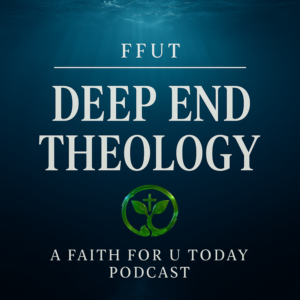Introduction:

The freedom we feel in America has become a right that we have come to expect. Many men and women sacrificed their lives on the battlefield to preserve that freedom, and no one is allowed to take it from us. The attitude and stance of Americans is to make freedom the all-consuming authority that must not be touched. With this kind of support and passion, it is no wonder that many of us struggle to listen to and accept Calvin’s theology on predestination.
 Predestination states that we have no control or choice, but God is responsible for all things that happen. Everyone would agree that God has the authority and power to do anything; yet, free will believers will often find it necessary to protect God’s goodness by placing blame on the individual who rejects Christ. To them, everyone has an opportunity to be saved. Everyone is given a chance to believe, they would say, because that is fair. God would never predestinate someone to hell. How can a loving God send someone to hell when the Bible clearly states that “God loves the world…” (John 3:16)? Wouldn’t God want everyone to be saved? That sounds like a loving God, right?
Predestination states that we have no control or choice, but God is responsible for all things that happen. Everyone would agree that God has the authority and power to do anything; yet, free will believers will often find it necessary to protect God’s goodness by placing blame on the individual who rejects Christ. To them, everyone has an opportunity to be saved. Everyone is given a chance to believe, they would say, because that is fair. God would never predestinate someone to hell. How can a loving God send someone to hell when the Bible clearly states that “God loves the world…” (John 3:16)? Wouldn’t God want everyone to be saved? That sounds like a loving God, right?
To me, that sounds like a handicapped God, because he cannot save or change the mind of a person’s sinful disposition. Free-willers believe God honors our rights and freedom and will not violate them. So to them, God cares more about their freedom than their life in hell for eternity. Honestly, that god sounds weak and incapable of saving anyone, along with being uncaring and unloving. Why?  Because if God truly loved me, He would save me despite my rebellion and sins. If I am living in sin and know nothing about God, what in the world would cause me to change and turn to God for salvation suddenly? I would not know who He is and why He wants to save me. But that is precisely the point here. It is by God’s grace alone that we are saved, not from our choice or responses. Salvation belongs to the Lord (Psalms 3:8). We did not come to Christ by our intellect, nor did we come to Christ because we made a choice to follow Him. We came to Christ because God called us to come. When God says or does something, it gets done. There will never be a person that God calls yet who resists and rejects the call. That is to say, God failed in His mission to save.
Because if God truly loved me, He would save me despite my rebellion and sins. If I am living in sin and know nothing about God, what in the world would cause me to change and turn to God for salvation suddenly? I would not know who He is and why He wants to save me. But that is precisely the point here. It is by God’s grace alone that we are saved, not from our choice or responses. Salvation belongs to the Lord (Psalms 3:8). We did not come to Christ by our intellect, nor did we come to Christ because we made a choice to follow Him. We came to Christ because God called us to come. When God says or does something, it gets done. There will never be a person that God calls yet who resists and rejects the call. That is to say, God failed in His mission to save.
We must be cautious in how we interpret doctrine and theology. If we try to rationalize the answer by wrapping our theology around our autonomy, then our aim for the destination is off.  It may look slightly off and not a big deal today, but just as a sniper takes careful aim before firing his rifle, so too our aim towards Christ must be accurate. If it is slightly off, even by a millimeter, then at 500 yards, the target will be missed due to the bullet’s trajectory. Our theology must align with God’s Word and guidance. We must not alter or modify theological teaching to suit our personal comfort needs. Let’s be honest here; it’s tough to accept Calvin’s teaching on predestination.
It may look slightly off and not a big deal today, but just as a sniper takes careful aim before firing his rifle, so too our aim towards Christ must be accurate. If it is slightly off, even by a millimeter, then at 500 yards, the target will be missed due to the bullet’s trajectory. Our theology must align with God’s Word and guidance. We must not alter or modify theological teaching to suit our personal comfort needs. Let’s be honest here; it’s tough to accept Calvin’s teaching on predestination.
I will admit it was not an easy ride. Many arguments and fights were encountered in support of free will, but as time progressed, I came to realize more about who I am and who God is.  The more I understood and accepted these two doctrines (the Doctrine of God and the Doctrine of Man), the more I began to see my true self in light of God’s holiness. It was crushing and almost to the point of despair. I had a difficult time accepting and understanding predestination and God’s sovereignty. I found myself constantly challenging and arguing with God over His rights over my life versus my responsibility and choices. Other people would argue with their pastors, teachers, or theologians, which I have also done, but I found no resolution. Instead, I decided to argue directly with God. I wanted God to prove to me He chose me rather than me choosing Him first. I wanted clear and concise answers. I did not get any answers immediately. The answers came to me as I struggled with the doctrine.
The more I understood and accepted these two doctrines (the Doctrine of God and the Doctrine of Man), the more I began to see my true self in light of God’s holiness. It was crushing and almost to the point of despair. I had a difficult time accepting and understanding predestination and God’s sovereignty. I found myself constantly challenging and arguing with God over His rights over my life versus my responsibility and choices. Other people would argue with their pastors, teachers, or theologians, which I have also done, but I found no resolution. Instead, I decided to argue directly with God. I wanted God to prove to me He chose me rather than me choosing Him first. I wanted clear and concise answers. I did not get any answers immediately. The answers came to me as I struggled with the doctrine.
This doctrine will either drive me closer to God or drive me away from God. Those were the two choices I had. If I were to believe in predestination, then I must rid myself of all pride and arrogance and submit to the authority and authorship of Jesus Christ.  Or, I can reject predestination and continue to believe I made the right choice in following Christianity over all other religions. My faith was challenged, and my entire belief system was in jeopardy. I would have to choose one over the other, or was there another way? Could it be possible that both can coexist? My faith was either going to grow or fall apart. That is how seriously I took this doctrine. It was a matter of the will. I eventually came to a point where I fell to my knees and submitted my last ounce of pride I had over to Christ’s sovereignty. I imagined that is how Thomas must have felt when he saw the resurrected Christ. The doctrine of predestination trimmed off all self-glorifying desires within me to bring me to a place of renewal of my mind. This doctrine, above all others, seems to get a person to confront the genuineness of their faith.
Or, I can reject predestination and continue to believe I made the right choice in following Christianity over all other religions. My faith was challenged, and my entire belief system was in jeopardy. I would have to choose one over the other, or was there another way? Could it be possible that both can coexist? My faith was either going to grow or fall apart. That is how seriously I took this doctrine. It was a matter of the will. I eventually came to a point where I fell to my knees and submitted my last ounce of pride I had over to Christ’s sovereignty. I imagined that is how Thomas must have felt when he saw the resurrected Christ. The doctrine of predestination trimmed off all self-glorifying desires within me to bring me to a place of renewal of my mind. This doctrine, above all others, seems to get a person to confront the genuineness of their faith.
Is your faith in Christ or yourself? Do people choose Christ, or does Christ choose people?  The Bible seems to teach both. People are given the choice to choose God (Joshua 24:15), and the Bible teaches that God does the choosing (John 15:16). How can we reconcile these verses and many others that teach both sides?
The Bible seems to teach both. People are given the choice to choose God (Joshua 24:15), and the Bible teaches that God does the choosing (John 15:16). How can we reconcile these verses and many others that teach both sides?
I had planned to write this article to explain my journey, but I found it difficult to condense it into a blog post. Instead, this will be part 1 of many short articles that cover one concept at a time, helping you see where and why I’ve come to believe in predestination. In this article, I will provide the historical background to ensure a unified understanding of how this all began. In the following articles, I will address issues I have with the free will doctrine, covering each issue in individual posts, allowing you to consider them as you see fit. I will also highlight four distinct issues about free will. These are the sanctity of God, the purpose of evangelism, exegesis of Scripture using modern metaphors and analogies, and how pride prevents acceptance of predestination.
In the following article, I will examine the historical background of how and when the doctrine of predestination emerged.






